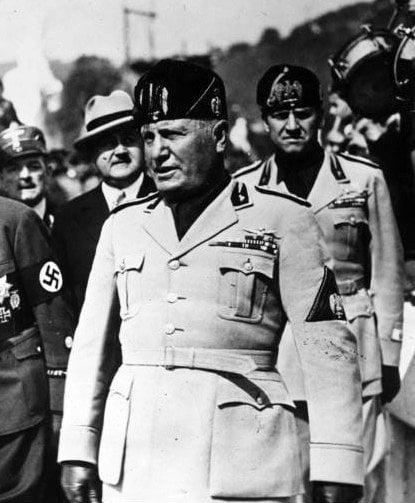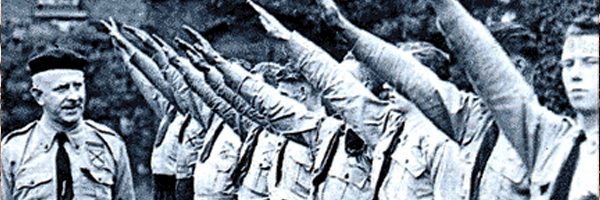Sympathy for the Devil: W.B. Yeats and fascism
When we slot figures neatly onto the plinths of our national pantheon, the heroic status we make often require some scrubbing before they are fit to be viewed by the public. Figures of national renown are scrubbed clean of their more radical thoughts- Martin Luther King Jr’s avowed leftism for example- in order to turn them into saints with simple stories who we can praise without wrestling with complex ideological questions.

As the Irish people raised W.B. Yeats to his exalted place in the national pantheon of artists and thinkers- can there be a higher form of worship than having bored 17 year olds learn your work by rote?- I’ve already discussed how we scrubbed him of his fascination with all things mystical and occult. But another fact about Yeats’ preoccupations has been bleached from our monuments to him and sees no mention in the rote dronings of leaving cert English teachers around the country: his sympathy for Fascism.
Fascism today is an ideological bogeyman, a word that conjures images of some of the most brutal regimes to ever wield an iron fist over countries and peoples; images of purges and secret police and genocide. Yeats lived at the dawn of the 20th century when Fascism had none of the grime and bloodstains that it wears now and when it seemed to many like an ascendant utopian ideology that would defend countries from the evils of modern decay and act as a bulwark against the spectre of communist regimes.
Yeat’s closest intellectual peers, modernists such as Ezra Pound and TS Eliot, were no strangers to fascist sympathising and Pound especially was well known for his extolling the virtues of Mussolini’s fascist regime in Italy even up to the end of the second world war when the horrors of fascism had been laid bare for the world. For a young, romantic, nationalist like Yeats, Fascism with its talk of the “national spirit” and “national myths”, would of course hold a great deal of appeal. The rituals, ceremony and elaborate symbolism so beloved of Mussolini and Hitler were reflective of and inspired by much of the same esoteric and occult work that Yeats was such a great admirer of.

[pullquote] Yeats found greater sympathy with the ultranationalism of fascists than he did with left wing thinkers of the time [/pullquote] Yeats’ political interests began with Irish nationalism and the struggle for Irish independence and that is where many leaving cert essays would have you believe his political thoughts ended. But at the time nationalism was on a continuum with fascism and Yeats found greater sympathy with the ultranationalism of fascists than he did with left wing thinkers of the time, who largely wished for the destruction of the nation state as an entity. Beyond mere nationalism and a love of symbolism however, Yeats admired the racial supremacist theories of fascist. In the great “Under Bel Bulben” one can happily trip through the gorgeous flower patches of Yeats’ flowing verse without taking note of his mention of “base born products of base beds”, a sharp thorn hidden among the blossoming stanzas. This line and others betray Yeats’ enthusiasm for eugenics, a form of thinking popular at the time which suggested that “unfit” people be sterilised so that only the strongest and most capable members of society could reproduce and thus society would grow stronger and more able.
Yeats view of this new-fangled “democracy” thing that was so in vogue at the time was a dim one. He spoke, in his revered work The Second Coming of how “The best (the aristocratic upper classes) lack all conviction, while the worst (the vast majority of working class people) are filled with passionate intensity”. The same Romantic and mythical fascinations that produced such glowing and exalted verse also led Yeats to a very conservative and traditionalist view of society as something in steep decline from the glory of ancient times where the great masses must be restrained for force. In his time in the senate he was well known as a liberal advocate for divorce but on issues such as the death penalty and the use of public floggings as punishment, he was decidedly less progressive. Yeats also briefly flirted with and supported the nascent Irish fascist movement of Eoin O’Duffy and the Blueshirts although he would later come to reject their antics as a farce, while still retaining much of the substance of their ideology and their aims.

I am an outspoken fan of Yeats and will forever maintain that his work stands among not only the best of Irish verse, but the best English language poetry period. It is precisely for this reason that I reject the squeaky clean image of him wheeled out on his 150th anniversary this year and wish instead to see Yeats warts and all, fairies and fascist tendencies intact. For in order to perceive all the nuances of his work we must delve into all the nooks and crannies of the man himself, even the darkest and most blood soaked ones.

